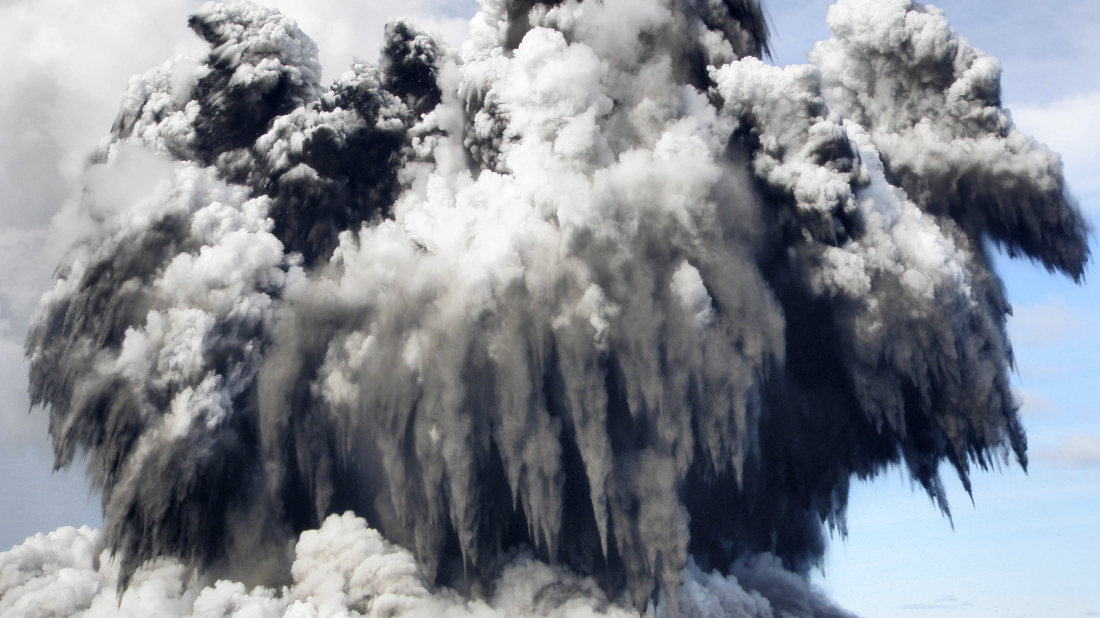Ramadan amid crisis: hunger, displacement and hope in Gaza
For many Palestinians, the holy month of Ramadan is being observed amid hunger, displacement and uncertainty. Families are relying on humanitarian aid...

An international team of 40 scientists and technical staff has embarked on a 54-day mission to study the impacts of Tonga's 2022 Hunga Volcano eruption.
The eruption, which produced an ash column reaching 58 km high, triggered a Pacific-wide tsunami, reshaped the seafloor, disrupted fisheries, and damaged undersea cables, cutting communications for thousands in Tonga for months.
The research involves partners from Tonga Geological Services, Fiji, New Zealand, Britain, and the United States. Over 120 scientific operations will be conducted around the submarine volcano, located 65 km northwest of Tonga's main island.
Associate Professor Rebecca Carey of the University of Tasmania, the voyage’s chief scientist, described the eruption site as a "ground zero" for understanding how deep-sea ecosystems recover from major natural disasters. She said the team would map the seafloor and sub-seafloor, extract sediment cores, survey marine life, and analyse environmental DNA from seawater to track recovery processes.
Scientists will also monitor volcanic plumes to detect potential ongoing underwater activity. The findings are expected to strengthen hazard assessments, improve risk models, and guide recovery planning.
The research aims to help Pacific Island nations manage disaster risk, protect fisheries, and safeguard food security, while also informing the installation of undersea communication backups to prepare for future volcanic events.
Iran’s Supreme National Security Council Secretary Ali Larijani said the United States could evaluate its own interests separately from those of Israel in ongoing negotiations between Tehran and Washington.
U.S. Secretary of State Marco Rubio on Sunday (15 February) called it “troubling” a report by five European allies blaming Russia for killing late Kremlin critic Alexei Navalny using a toxin from poison dart frogs.
Cuba’s fuel crisis has turned into a waste crisis, with rubbish piling up on most street corners in Havana as many collection trucks lack enough petrol to operate.
Norway is holding a commanding lead in the medal standings with 12 golds and a total of 26, with Italy having an historic performance on home soil on the ninth day of the Milano-Cortina Winter Olympics on Sunday (15 February).
Iran’s Revolutionary Guards navy held military exercises in the Strait of Hormuz on Monday (16 February), state-linked media reported. The drill took place a day before renewed nuclear negotiations between Tehran and Washington in Geneva.
ByteDance will take steps to prevent the unauthorised use of intellectual property on its artificial intelligence (AI) video generator Seedance 2.0, the Chinese technology firm said on Monday.
The formation of a black hole can be quite a violent event, with a massive dying star blowing up and some of its remnants collapsing to form an exceptionally dense object with gravity so strong not even light can escape.
BMW is recalling a mid six figure number of vehicles worldwide after identifying a potential fire risk linked to the starter motor.
British chipmaker Fractile will invest £100 million over the next three years to expand its artificial intelligence hardware operations in the UK, opening a new engineering facility in Bristol as it ramps up production of next-generation AI systems.
The European Union has launched its largest semiconductor pilot line under the European Chips Act, investing €700 million ($832 million) in the new NanoIC facility at IMEC in Leuven, Belgium, as part of efforts to strengthen Europe’s technological sovereignty.
You can download the AnewZ application from Play Store and the App Store.

What is your opinion on this topic?
Leave the first comment